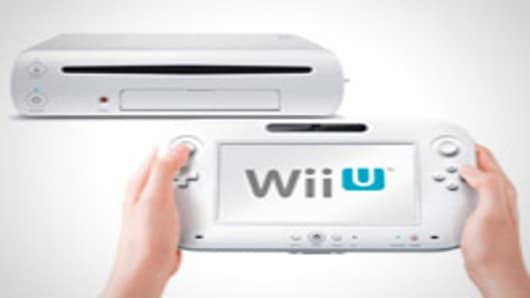Nintendo, which tends to guide to the low side during console launch windows, has said it only expects to sell 5.5 million Wii U hardware units in the 2013 fiscal year.
Some analysts, including Wedbush's Michael Pachter, were expecting that number to be higher, even with the company's conservative track record. (Pachter was expecting guidance in the 6-7 million range.)
The system will also launch in an extremely competitive software environment.
Killer Competition
Retail game software sales in 2012 might be disappointing, but the quality of games has never been higher.
Microsoft's "Halo 4" is a critical and commercial smash. Activision's "Call of Duty: Black Ops II" is expected to set new industry sales records. And other recent titles like Bethesda's "Dishonored" and Take-Two's "XCOM: Enemy Unknown" are still attracting players.
The impact of those games on the Wii U and its software will likely be negligible, though. (Read More: Call of Duty: Black Ops II 'Shatters' Pre-Order Records )
"You have to look at the audience," said Eric Handler of MKM Partners. "It's the core Nintendo audience that's going to buy this immediately. When you look at some of the games people are going to be playing, that will be reflected. Families are going to play 'NintendoLand', not 'Call of Duty'. 'Mario' fans are going to play 'New Super Mario Bros. U'." (Read More: 10 Must-Have Games for 2012 )
On top of that, the sheer lack of availability (as well as what's almost certain to be blanket media coverage of that shortage) could prompt some fence sitters to join the lines once the Wii U is classified a "hot holiday toy."
'Exaggerated Demand'
While the Wii was able to carry that huge demand forward, most expect the Wii U will fail to do so. (Read More: Will It Be 'Game Over' for Videogame Makers This Holiday? )
"Nintendo has been the beneficiary of a series of sold out situations over the past two or three system launches," said John Taylor of Arcadia. "There's nothing like scarcity to create exaggerated demand."
For one thing, the system lacks the instantly identifiable hook that the Wii had with its revolutionary gameplay style. Some analysts also question the company's naming strategy of the device, saying Wii U is too similar to Wii to differentiate the system to the mass market.
Others point to the changing gaming marketplace. The rise of Apple's iPhone and iPad—along with competing Android devices—has wooed over many casual players who have been Nintendo's bread and butter this generation. (Read More: $1.5 Million of Apple Goods Stolen in iPad Mini Heist: Report )
But many industry insiders are worried about the retail cost of the system.
Price Tag May Hurt Sales
Pachter said he believes the system is overpriced and Nintendo will be forced to lower the retail cost of the Wii U in the Spring. Even one of Nintendo's strongest publishing partners isn't happy with the $300 and $350 price tags on the two models.
"I always prefer lower pricing, so I can't say I'm happy," said Ubisoft chairman and CEO Yves Guillemot. "I'm never happy when the machines are expensive. What we have to do there is remember that compared to an iPad, it's cheap. With what it brings [to the gaming table] it's cheap. But I hope they'll be able to drop their price in time."
If there's one hard and fast rule in the videogame world, though, it's this: Never bet against Nintendo. The company's death has been predicted several times, and it has always rebounded.
This generation, though, it's going to need to prove the case for the Wii U in a relatively short period of time.
"Scarcity during the holidays of 2012 will stoke pent up demand all the way though Spring time of 2013," said Taylor. "Where it's going to get to be a little more challenging is around the May time frame or when warm weather shows up again. I think Nintendo is going to really need to demonstrate what is truly amazing about this by that time."
The key to that, he said, is a strong promotional outreach or the announcement of a "killer app" game. And, so far, Nintendo hasn't unveiled one that seems to fit that definition.
"One thing that could keep demand strong well into the summer is a new game we don't know about—and anything's possible," he said. "The other is if Nintendo is successful in explaining to people why the asynchronous play and the tablet are really, really fun."
Nintendo needs to figure out a way to demonstrate to consumers how the Wii U gamepad, or tablet, enables users to play games in a manner that is not currently possible on any other gaming system, Taylor said.
"If they ramp that into a fun factor of 10X and communicate that, I think they can sustain the momentum."
email: tech@cnbc.com


